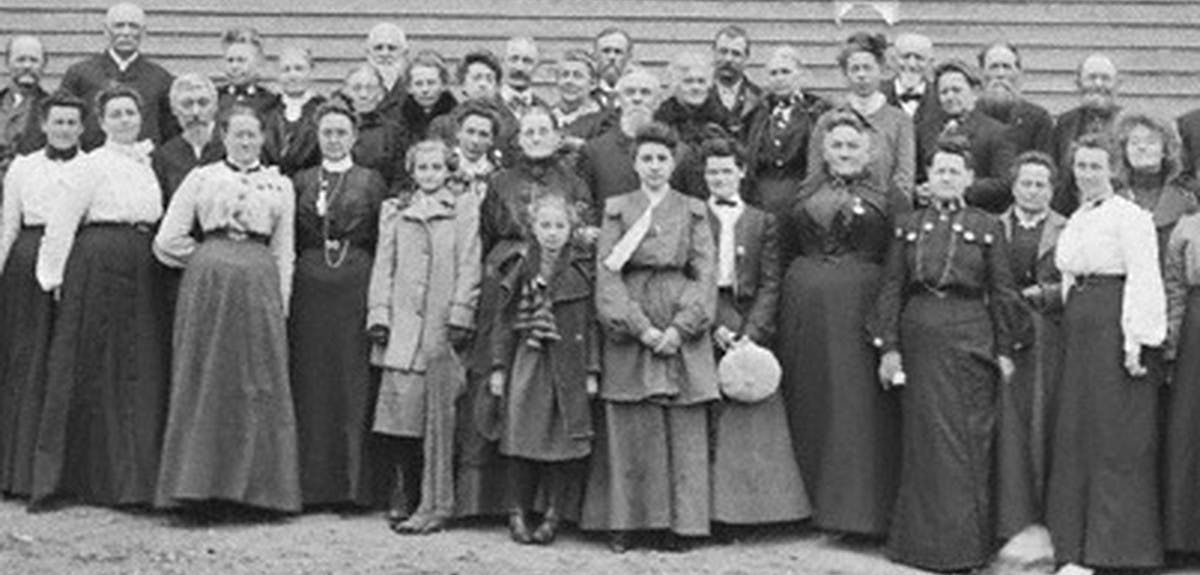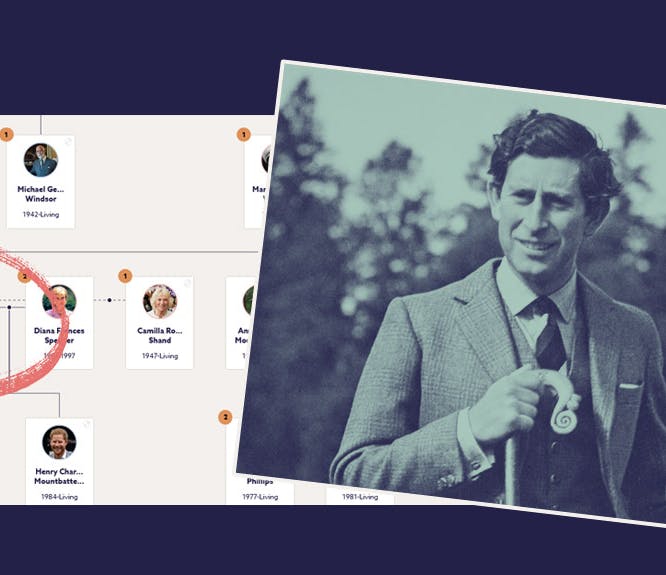Shivaree: The traditional hazing of our newlywed ancestors
2-3 minute read
By The Findmypast Team | February 11, 2016

How would you feel if you were interrupted on your wedding night by a raucous crowd gathered outside your new home?
If your ancestors got married on the frontier, there's a good chance their communities practiced the celebratory tradition known as "shivaree" - wedding guests would often return uninvited to the homes of newlyweds, banging pots and pans, shooting guns and forcing entry into the matrimonial residence.
Sometimes the married couple was kidnapped and paraded through town, or dunked in a horse trough and abandoned in the countryside - anything to mischievously disrupt the presumed wedding night activities of a newly married couple.
Of course it was all in good fun, and the couple was eventually allowed to consummate their marriage. But the roots of this American tradition go all the way back to our European ancestors, whose similar practice had a much more ominous connotation.
Good-natured chaos in the bridal suite
Though it sounds quite far from wedding traditions today, shivaree was actually very common in the 19th century Midwest - it was an expected part of weddings. Many communities continued the practice in the first half of the 20th century.
Communities viewed it as an important first ordeal for the couple to tackle together, kicking off their wild ride through married life on the frontier - somewhat of a hazing to induct them into the community of other married couples.
Although the exact activities differed based on the specific community, shivarees usually involved a noisy procession to the newlywed's house, parading the couple about town, dunking them in water, and breaking into their house to mischievously pour salt in their sheets or mix up labels on food in their pantry. Sometimes the crowds could be convinced to disperse if the couple bribed them well enough.
One Kansan recalls when he married, he was "shivereed good":
"Those shiveree clowns and their wives busted right into our house and dragged us out by force. I fought, but it was no use.
They set my young bride in a wheelbarrow that hadn't been greased for years. And they made me push her in the wheelbarrow down our main street to a beer palace. It seemed like miles.
They forced me, and I mean forced, to treat all that crowd to beer and salami and rye bread and to cigars and candy and so on, in fact to about everything eatable and drinkable in the joint.
Then they put my bride back in the wheelbarrow and made me push her home again..."
The European origins of shivaree
Historians trace the roots of shivaree in America to similar practices in Canada and England.
Indeed, many communities throughout history have practiced traditions similar to shivaree, but the American version is uniquely lighthearted. In Medieval France the tradition seems to have initially been celebratory, but eventually transformed into a brutal way for communities to enforce social norms.
Charivari, as it was known in England and Canada, was a way for communities to break up any relationships they didn't approve of. Adulterers, wife beaters and couples seen as having illegitimate marriages were all at risk to have their doors knocked down by an angry mob in the middle of the night. Some communities disapproved of a large age-gap between spouses, or if a widow re-married too soon after her husband died.
The intervention involved noisemaking, shaming activities (being paraded around town on a donkey) and sometimes even killing. While they sometimes resulted in the permanent dissolution of the couple, they often were just a way for the community to loudly voice their disapproval of the event - many times life resumed as normal afterwards.
Historians disagree as to whether or not the tradition spread down to the U.S. from Canada, or across the Atlantic through our English ancestors - either way, we're certainly thankful that when our ancestors bothered newlyweds with shivaree, it was only for fun!
Sources:
Loretta T. Johnson, "Charivari/Shivaree: A European Folk Ritual on the American Plains" in The Journal of Interdisciplinary History Vo. 20, No. 3 (Winter, 1990), pp. 371-387
Michael Taft, "Shivaree", Encyclopedia of the Great Plains David J. Wishart, Ed. Accessed 2/11/2016 at http://plainshumanities.unl.edu/encyclopedia/doc/e...
Related articles recommended for you

Irish family history and minority religions in Ireland
History Hub

'Their hunger will not allow them to continue': the victorious London dockers' strike of 1889
History Hub

Who's who on King Charles III's family tree?
Build Your Family Tree

